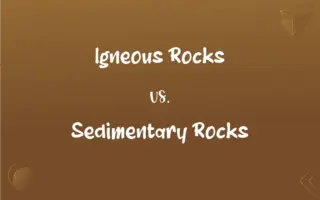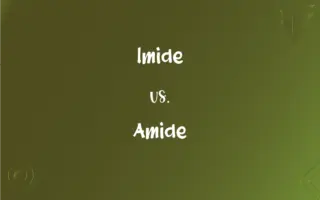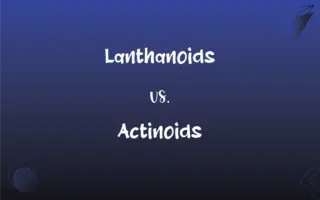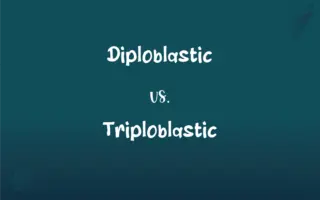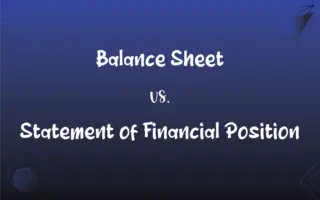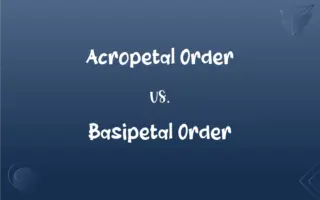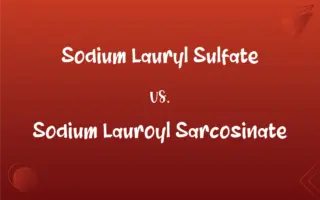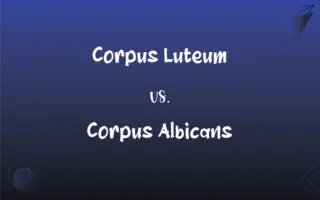Hypnotism vs. Mesmerism: What's the Difference?
Edited by Janet White || By Harlon Moss || Updated on October 23, 2023
Hypnotism is the practice of inducing a trance-like state to increase suggestibility, while mesmerism, rooted in Franz Mesmer's theories, posits a magnetic fluid influence between individuals.

Key Differences
Hypnotism refers to the method or technique of putting someone into a trance-like state, often characterized by heightened focus and receptivity to suggestion. Mesmerism is based on the earlier practices and teachings of Franz Mesmer, who believed in a kind of "animal magnetism" that could be transferred between individuals.
In hypnotism, the trance state is achieved through specific relaxation techniques, verbal cues, and repetitive suggestions. The process is believed to tap into the subconscious mind, allowing for deep-seated beliefs or memories to be accessed. In contrast, mesmerism postulates a magnetic fluid or energy that one person can transfer to another, influencing their mental and physical state.
Today, hypnotism is commonly used in therapeutic settings, such as hypnotherapy, to address behavioral and psychological issues. It is scientifically recognized and distinct from stage hypnotism, which is performed for entertainment. On the other hand, mesmerism has largely fallen out of favor and is often viewed as pseudoscience, but it played a significant role in the early history of psychology and the study of the human mind.
Despite the differences, both hypnotism and mesmerism share an underlying theme of influence over another person's mental state. While hypnotism has roots in clinical practice and psychology, mesmerism is more associated with the mysticism of the 18th and 19th centuries.
Comparison Chart
Origin
Modern psychological practice
Based on Franz Mesmer's "animal magnetism" theory
ADVERTISEMENT
Usage
Therapeutic, entertainment
Historical therapeutic, mystical
Technique
Induction through verbal cues, relaxation
Believed to use a "magnetic fluid"
Scientific View
Accepted in psychology and therapy
Largely considered pseudoscience today
Focus
Accessing subconscious mind
Influence through magnetic energy transfer
Hypnotism and Mesmerism Definitions
Hypnotism
A technique to influence behavior and thought through the subconscious mind.
With hypnotism, he managed to quit smoking after years of addiction.
ADVERTISEMENT
Mesmerism
An early precursor to modern hypnotic practices.
Although mesmerism has lost its popularity, it paved the way for contemporary hypnotic techniques.
Hypnotism
The practice of inducing a trance-like state to heighten suggestibility.
Through hypnotism, he accessed buried memories of his childhood.
Mesmerism
An 18th-century practice based on Franz Mesmer's theory of "animal magnetism."
She studied the historical practices of mesmerism as part of her research.
Hypnotism
A method to achieve deep relaxation and increased focus.
She used hypnotism to help her overcome her fear of flying.
Mesmerism
The belief in a magnetic fluid exchanged between individuals to influence health and behavior.
He was a firm believer in mesmerism and its healing properties.
Hypnotism
A state of heightened receptivity to direct suggestion.
Hypnotism allowed her to recall details she thought she had forgotten.
Mesmerism
A method asserting influence over another through supposed magnetic energy.
The crowd was captivated, almost as if under the spell of mesmerism.
Hypnotism
The art of placing an individual into a sleep-like state for therapeutic purposes.
Many turn to hypnotism for help with issues like insomnia or anxiety.
Mesmerism
The act of inducing trance states through believed magnetic forces.
She tried mesmerism to find relief from her chronic pain.
Hypnotism
The theory or practice of inducing hypnosis.
Mesmerism
A strong or spellbinding appeal; fascination.
FAQs
Is mesmerism scientifically accepted?
It's largely considered pseudoscience today, though it played a role in early psychology.
Is hypnotism scientifically accepted?
Yes, especially when used in therapeutic settings like hypnotherapy.
Are hypnotism and mesmerism the same?
No, while both involve trance-like states, hypnotism focuses on suggestibility, and mesmerism focuses on "animal magnetism."
What is hypnotism?
Hypnotism is the practice of inducing a trance-like state to increase suggestibility.
Was mesmerism popular in the past?
Yes, especially during the 18th and 19th centuries.
How does hypnotism work?
Through specific relaxation techniques and verbal cues that access the subconscious mind.
How was mesmerism believed to work?
Through the transfer of a magnetic fluid or energy between individuals.
What's the difference between hypnosis and hypnotism?
Hypnosis refers to the trance-like state itself, while hypnotism refers to the practice or technique.
What is mesmerism?
Mesmerism is based on Franz Mesmer's theories, suggesting a magnetic fluid influence between individuals.
Can hypnotism be harmful?
When practiced by untrained individuals, it can be, but in therapeutic settings, it's generally safe.
Is mesmerism still practiced today?
While largely historical, some niche groups and individuals still explore mesmerism's techniques and concepts.
Is stage hypnotism real?
Stage hypnotism is for entertainment and may involve some genuine trance states, but it's distinct from therapeutic hypnotism.
Can you self-hypnotize?
Yes, with practice, many individuals can achieve a state of self-hypnosis.
What's the main goal of hypnotism?
To access the subconscious mind, influence behavior, or achieve relaxation and focus.
Was mesmerism used for healing?
Yes, Franz Mesmer and his followers believed it had therapeutic properties.
Are there any famous figures associated with mesmerism?
Franz Mesmer is the most notable figure linked to mesmerism.
Can anyone be hypnotized?
Most people can be hypnotized to some degree, but responsiveness varies.
Did mesmerism lead to the development of any modern practices?
Yes, mesmerism paved the way for modern hypnotic practices.
Can hypnotism help with anxiety?
Many people find relief from anxiety through therapeutic hypnotism.
Why did mesmerism fall out of favor?
As scientific understanding advanced, many of mesmerism's principles were debunked.
About Author
Written by
Harlon MossHarlon is a seasoned quality moderator and accomplished content writer for Difference Wiki. An alumnus of the prestigious University of California, he earned his degree in Computer Science. Leveraging his academic background, Harlon brings a meticulous and informed perspective to his work, ensuring content accuracy and excellence.
Edited by
Janet WhiteJanet White has been an esteemed writer and blogger for Difference Wiki. Holding a Master's degree in Science and Medical Journalism from the prestigious Boston University, she has consistently demonstrated her expertise and passion for her field. When she's not immersed in her work, Janet relishes her time exercising, delving into a good book, and cherishing moments with friends and family.











































